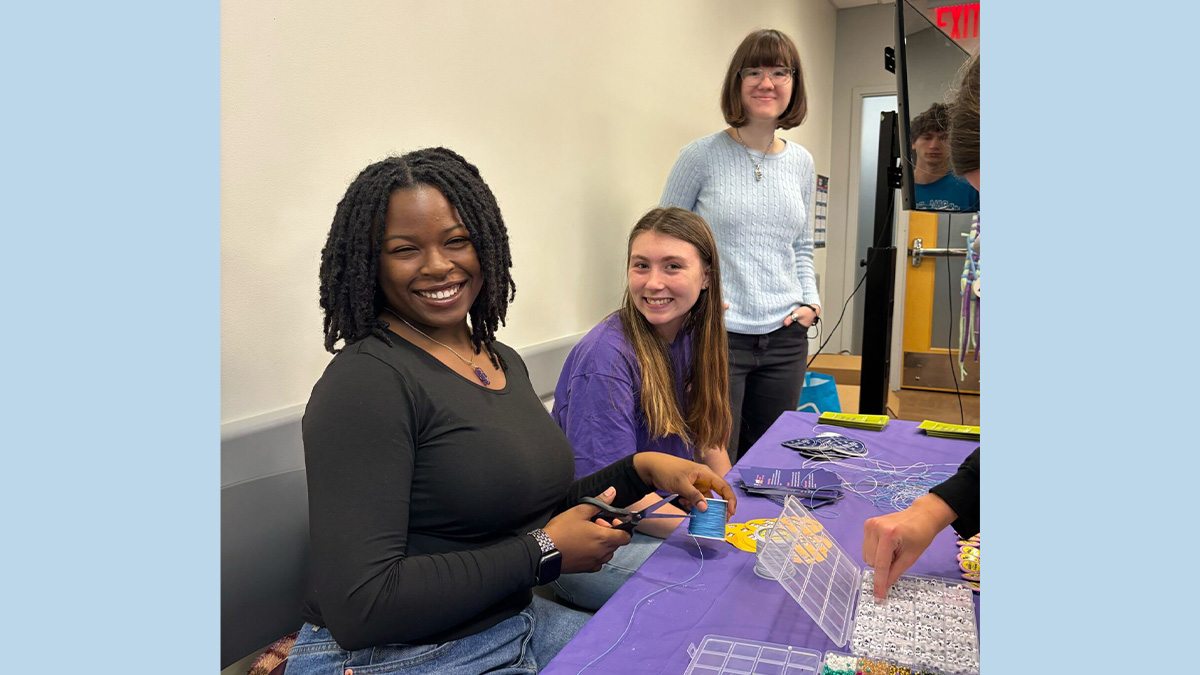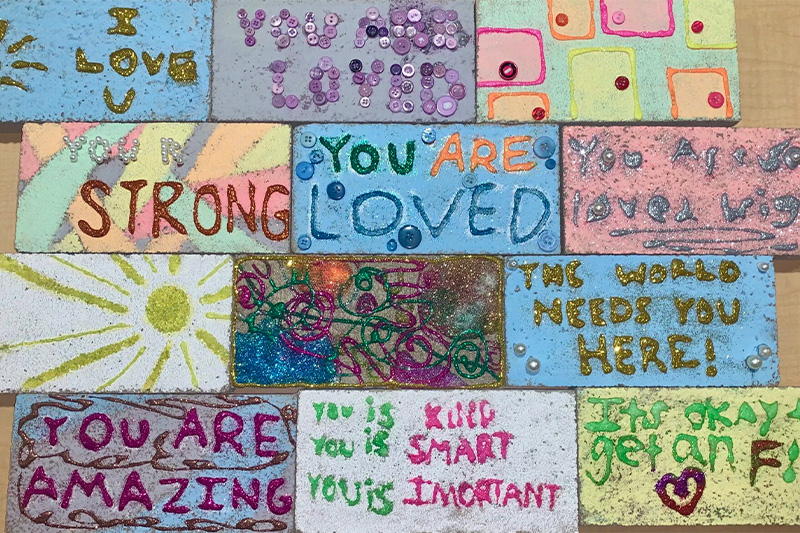Active Minds connects students to improve mental health
Carolina chapter president Natalie Tuinstra details club events and talks about the power of forming friendships.

Natalie Tuinstra has always had an interest in psychology and mental health. But the Carolina senior and president of Active Minds at Carolina says the mental health student group is for all Tar Heels.
“It’s not just a psychology club,” said Tuinstra, who studies information science and psychology.
The group aims to increase students’ awareness of mental health conditions and provide resources and information, serving as a liaison between students and the mental health community.
Learn more from Tuinstra about Active Minds and its work around campus.
How did you get involved with Active Minds?
I knew I wanted to join clubs aligned with my interest in psychology and mental health in general. I joined sophomore year and was elected podcasting chair, so I made some podcasts on Spotify about different topics I was interested in and thought other students would be interested in.
My junior year, I was elected president, and we did a lot of rebuilding and growing the organization. We started having general body meetings regularly and defined committees and what each one would do. We’ve planned a lot more events, and it’s really grown. We started from around 20 members my sophomore year, and now we’re at over 400.
What sort of events are you doing as a group around campus?
Active Minds is a national organization, so we’re the Chapel Hill chapter of it. Much of what we do is based on the national level in terms of advocacy and educating students. For instance, a couple months ago, Active Minds partnered with MTV for a new mental health initiative, and we had an event around that, which was cool because we got to film for the potential of being on MTV.
I like doing events where you get to meet new people and create genuine connections. That’s also something I do a lot of research on: How can you go from a stranger to being a friend? A lot of the events we do are centered around that. They’re called Fast Friends and are these questions that have been researched to increase closeness between two people. We also started doing something called Casual Conversations, where we choose a topic and have a bunch of people talk about it, whether it be burnout or anxiety or something like that.
We’re also featured on the Heels Care website, where all of the central mental health resources are, and our podcast is on there.

(Submitted photo)
What are some of the mental health conditions you focus on?
The biggest one I’ve seen, and it’s not talked about a lot, is loneliness. Even though we’re on such a big campus, a lot of us are lonely — even if we don’t show it. That’s what I try to center most of our events around. Just doing fun little things you normally wouldn’t do, like making a friendship bracelet and giving it to somebody else. Because if you have close social connections, then a lot of other areas in your life automatically improve.
I would also say burnout is a big issue and one that we’ve done several talks on.
What else do you have planned for the spring semester?
Around this time last year, we had a mental health festival concert. I love music, and I think it’s great for mental health and connecting with people. Now with Healthy Heels and a couple of other mental health organizations, we’re trying to redo it this year and are hoping for April.
We’re also in the early stages of beginning a mentoring program to help start Active Minds chapters at local middle schools.







